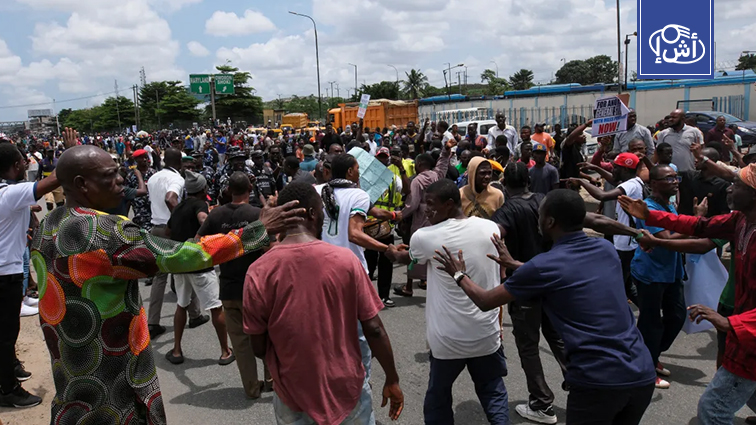Nigerian President Bola Ahmed Tinubu has called for an “end to the protests and bloodshed” after ongoing demonstrations left at least 13 people dead.
In his first public comments on the protests that began on Thursday, Tinubu urged protesters to “stop the protests and open the door to dialogue,” saying he understood the pain and frustration felt by citizens.
The capital, Abuja, has seen large gatherings of protesters, with police using tear gas to disperse them as they tried to march on government offices.
Dozens of protesters were reportedly arrested, and tear gas was fired to disperse those trying to reach the city center.
In the northern state of Kano, local media reported that at least one person was shot in the neck and taken to hospital, reflecting the escalating violence during the protests.
In a related development, the Inspector General of Police, Kayode Egbetokun, said the police were on high alert and could seek assistance from the military if the situation deteriorated further.
The protests come against the backdrop of the livelihood crisis affecting many Nigerians and are reminiscent of a major protest movement that the country witnessed in October 2020, when 10 protesters were killed while demanding the dissolution of a police unit accused of committing human rights violations, which the government and the military denied.
The current protests reflect the depth of the social and economic crises facing Nigeria and highlight the need for peaceful and effective solutions to avoid further escalation and violence.
Algeria and Italy sign a strategic agreement for a huge project in the production of grains and legumes
